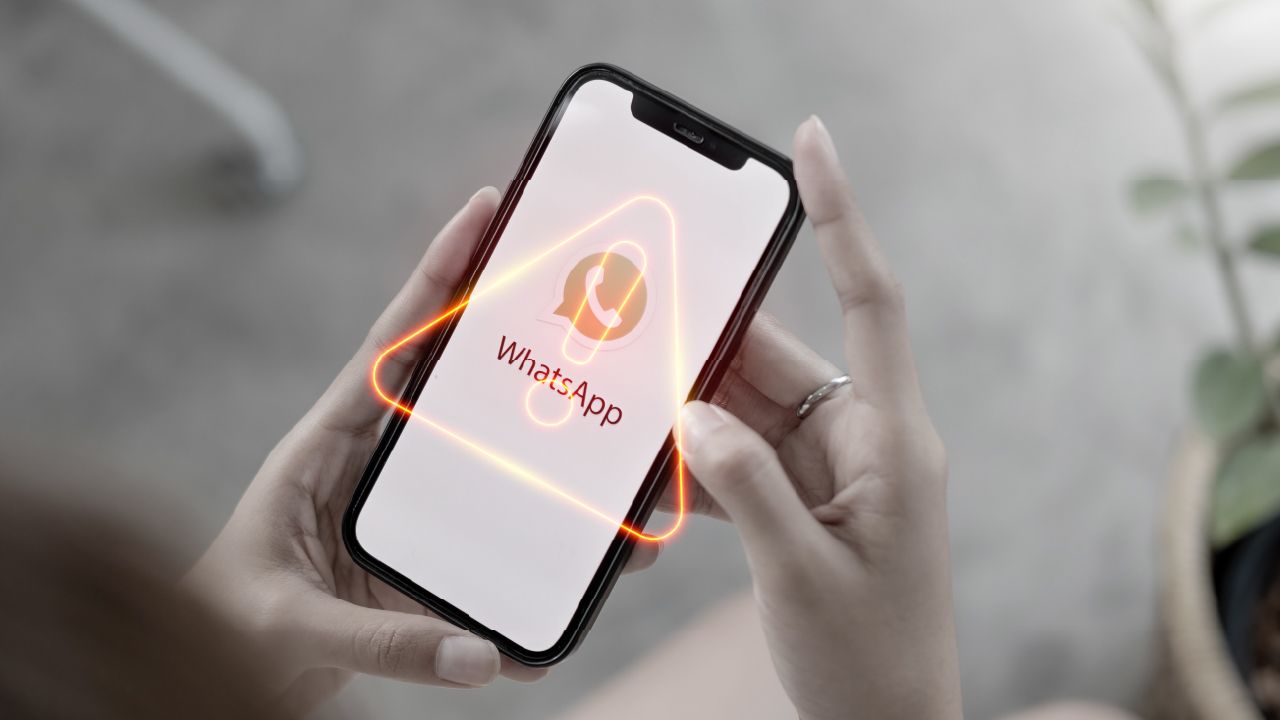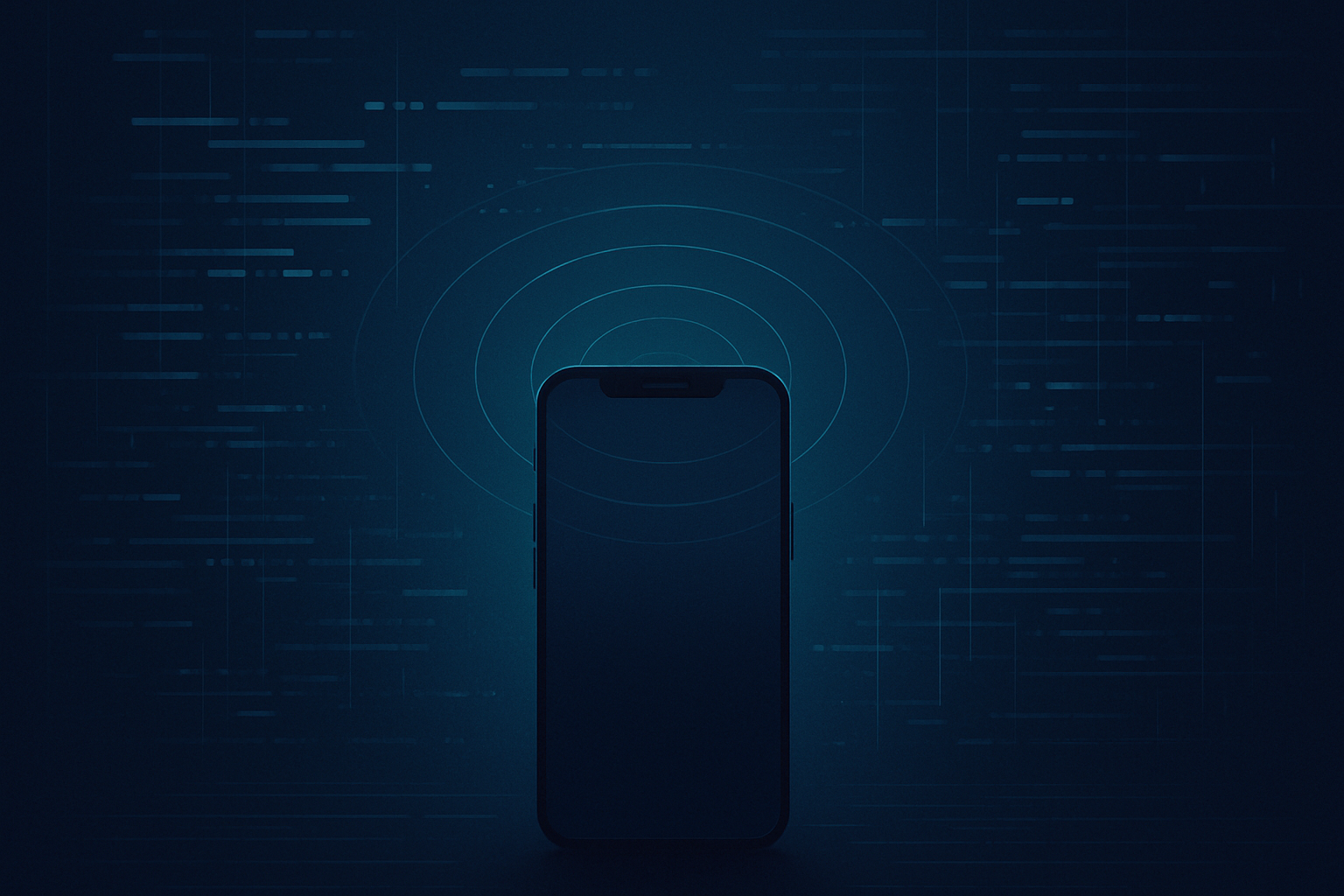Beyond WhatsApp: Why Your Most Sensitive Communications Demand Superior Security
With over two billion users worldwide, WhatsApp has become the default messaging platform for personal and increasingly, professional communications. Its ubiquity offers convenience, but for those with genuinely sensitive information to protect, this popularity comes with significant risks. While WhatsApp offers basic security features that satisfy average users, the platform falls dramatically short for individuals and organizations where privacy isn't just preferable—it's imperative. Government officials, high-net-worth individuals, enterprise executives, and privacy-conscious users face threats that WhatsApp simply wasn't designed to counter.
The question isn't whether WhatsApp has security features—it does. The question is whether those features are sufficient when your personal safety, business interests, or national security hang in the balance.
WhatsApp's Security Features: The Illusion of Complete Protection
WhatsApp prominently advertises its implementation of end-to-end encryption, positioning this technology as the gold standard for messaging security. This encryption does provide a meaningful layer of protection by ensuring that message contents remain scrambled during transmission between devices.
However, this single security feature has created a dangerous perception of invulnerability among users who don't understand its limitations:
- End-to-end encryption only protects message content – not the extensive metadata WhatsApp collects about your communications
- Two-step verification adds an additional PIN for account access but doesn't prevent sophisticated account takeover methods
- Disappearing messages can be captured via screenshots before they vanish
- Encrypted backups still create potential vulnerability points when stored in third-party cloud services
Most critically, WhatsApp's security architecture was designed for consumer convenience first, with security as a secondary consideration. This fundamental design philosophy creates inherent vulnerabilities that cannot be patched away with feature updates.
The WhatsApp Security Vulnerabilities They Don't Advertise
Behind WhatsApp's security marketing lies a troubling reality of vulnerabilities that pose genuine risks to users with sensitive communications:
Meta's Data Collection Empire
WhatsApp operates under Meta's corporate umbrella, a company whose business model revolves around data collection and monetization. While WhatsApp claims message content remains private, the platform collects extensive metadata including:
- Who you communicate with
- How frequently you interact
- Your location data
- Device information
- Usage patterns
This metadata creates detailed communication profiles that can reveal sensitive information even without access to message content. For government agencies, business leaders, or high-profile individuals, these communication patterns alone can expose critical relationships and activities.
Sophisticated Attack Vectors
WhatsApp users face multiple attack vectors that bypass encryption entirely:
SIM swapping allows attackers to take control of your phone number, potentially gaining access to your WhatsApp account and all associated communications. This attack requires no sophisticated technical skills—just basic social engineering of mobile carrier employees.
Zero-click exploits represent perhaps the most alarming threat. These sophisticated attacks can compromise devices without requiring users to click malicious links or download infected files. Once deployed, they grant complete access to everything on the device—including WhatsApp communications before they're encrypted.
Phishing campaigns specifically target WhatsApp users, tricking them into revealing verification codes or other credentials that compromise account security. These attacks exploit human psychology rather than technical vulnerabilities, making them particularly effective.
The Government Access Question
WhatsApp's global popularity makes it an obvious target for government surveillance programs. While Meta maintains it cannot access encrypted message content, several concerning realities remain:
- WhatsApp complies with legal requests for metadata in jurisdictions where it operates
- The platform's closed-source nature means users cannot independently verify security claims
- Government pressure for backdoor access to encrypted communications continues to mount globally
For government officials, enterprise organizations, or individuals operating in sensitive environments, these uncertainties create unacceptable risks.
Why Privacy-Conscious Users Need More Than WhatsApp Can Offer
The limitations of WhatsApp's security model create particular vulnerabilities for specific user groups:
Government agencies handling classified information or sensitive diplomatic communications cannot risk exposure through metadata analysis or zero-click exploits. National security interests demand communication channels with security as the foundational design principle, not a marketing feature.
Enterprise organizations conducting high-stakes business negotiations, discussing proprietary information, or communicating about market-moving developments need absolute certainty that their communications remain confidential. A single compromised conversation could result in millions in damages or irreparable competitive disadvantage.
High-net-worth individuals face targeted threats from sophisticated adversaries seeking financial gain or leverage. Their personal safety, financial security, and reputation depend on communication channels that remain impervious to both technical and social engineering attacks.
Privacy-conscious individuals increasingly recognize that digital privacy is a fundamental right worth protecting, regardless of whether they have "something to hide." As surveillance capitalism expands, these users seek tools that respect their privacy by design, not as an afterthought. For these users, WhatsApp's consumer-grade security creates an unacceptable gap between the protection they need and the protection they receive.
The SecurePhone: Communication Security Without Compromise
The fundamental security limitations of mainstream messaging platforms like WhatsApp have driven the development of purpose-built alternatives designed for those who cannot compromise on communication security. The SecurePhone from Sotera Digital Security represents the pinnacle of this approach—a comprehensive security solution built from the ground up with privacy as its core design principle.
Unlike WhatsApp's approach of adding security features to a consumer-focused platform, the SecurePhone integrates four critical security elements into a cohesive system:
1. Privacy-First Design Philosophy
The SecurePhone operates on a fundamentally different premise than consumer messaging apps: your communication data belongs exclusively to you. This means:
- No collection of metadata about your communications
- No tracking of location data
- No logging of communication patterns
- No backdoors or access points for third parties
This privacy-first approach eliminates the fundamental vulnerability of platforms like WhatsApp, where extensive data collection creates inherent risk regardless of encryption strength.
2. End-to-End Encrypted Communications
The SecurePhone employs military-grade encryption for both text and voice communications, ensuring that sensitive conversations remain protected from interception. Unlike WhatsApp, this encryption extends beyond just message content to protect all aspects of your communications, leaving no metadata trail for adversaries to exploit.
3. Purpose-Built Secure Operating System
Perhaps the most significant advantage of the SecurePhone is its custom secure operating system. This purpose-built environment eliminates the vulnerabilities inherent in consumer mobile operating systems that make them susceptible to zero-click exploits and other sophisticated attacks. The secure operating system:
- Prevents malicious code execution
- Blocks unauthorized access attempts
- Eliminates common attack vectors
- Provides continuous security monitoring
This approach addresses the fundamental weakness of using security apps on insecure operating systems—a vulnerability that no amount of app-level encryption can overcome.
4. Global SIM Technology
The SecurePhone's integrated global SIM technology provides seamless worldwide connectivity while eliminating the SIM-swapping vulnerabilities that plague traditional mobile devices. This technology ensures that your secure communications remain available wherever your work or travel takes you, without introducing additional security risks.
Real-World Protection for High-Stakes Communications
The comprehensive security approach of the SecurePhone translates into tangible protection for scenarios where WhatsApp's consumer-grade security falls short:
For government officials, the SecurePhone provides a communication channel that remains secure even in hostile foreign environments where sophisticated surveillance is prevalent. Diplomatic discussions, classified information sharing, and sensitive negotiations can proceed with confidence that both message content and communication patterns remain protected.
For enterprise executives, the SecurePhone eliminates the risk of corporate espionage during critical business negotiations, mergers and acquisitions discussions, or strategic planning. Intellectual property, market strategies, and competitive information remain truly confidential, protected from both technical exploits and metadata analysis.
For high-net-worth individuals, the SecurePhone safeguards personal privacy, financial discussions, and family communications from targeted attacks. The comprehensive security approach protects not just against financial threats but also against reputation damage and personal safety risks that can arise from compromised communications.
For privacy advocates, the SecurePhone represents communication technology aligned with their values—a device that respects user privacy as a fundamental design principle rather than a marketing feature.
Taking Control of Your Communication Security
The reality of digital communication security is stark: consumer platforms like WhatsApp were never designed to protect truly sensitive information from determined adversaries. Their security features provide adequate protection for everyday conversations but create dangerous false confidence for high-stakes communications.
The choice between WhatsApp and truly secure alternatives like the SecurePhone isn't merely about features—it's about fundamentally different approaches to security and privacy:
- WhatsApp adds security features to a consumer platform designed for convenience and data collection
- The SecurePhone builds every aspect of its system around security and privacy as non-negotiable requirements
For government agencies, enterprise organizations, high-net-worth individuals, and privacy-conscious users, this distinction isn't academic—it's essential. When the stakes include national security, business viability, personal safety, or fundamental privacy rights, compromise isn't an option.
The SecurePhone represents Sotera Digital Security's commitment to providing uncompromising communication security for those who need it most. In a world of escalating digital threats and expanding surveillance, it stands as a definitive solution for those who understand that true security comes not from features but from fundamental design.
Secure Your Most Sensitive Communications Today
Don't wait for a security breach to reveal the limitations of consumer messaging platforms. Contact Sotera Digital Security today to learn more about how the SecurePhone can protect your most sensitive communications from the threats that WhatsApp can't address.

 Beyond WhatsApp: Why Your Most Sensitive Communications Demand Superior Security">
Beyond WhatsApp: Why Your Most Sensitive Communications Demand Superior Security">





Leave a Reply
Your email address will not be published.*